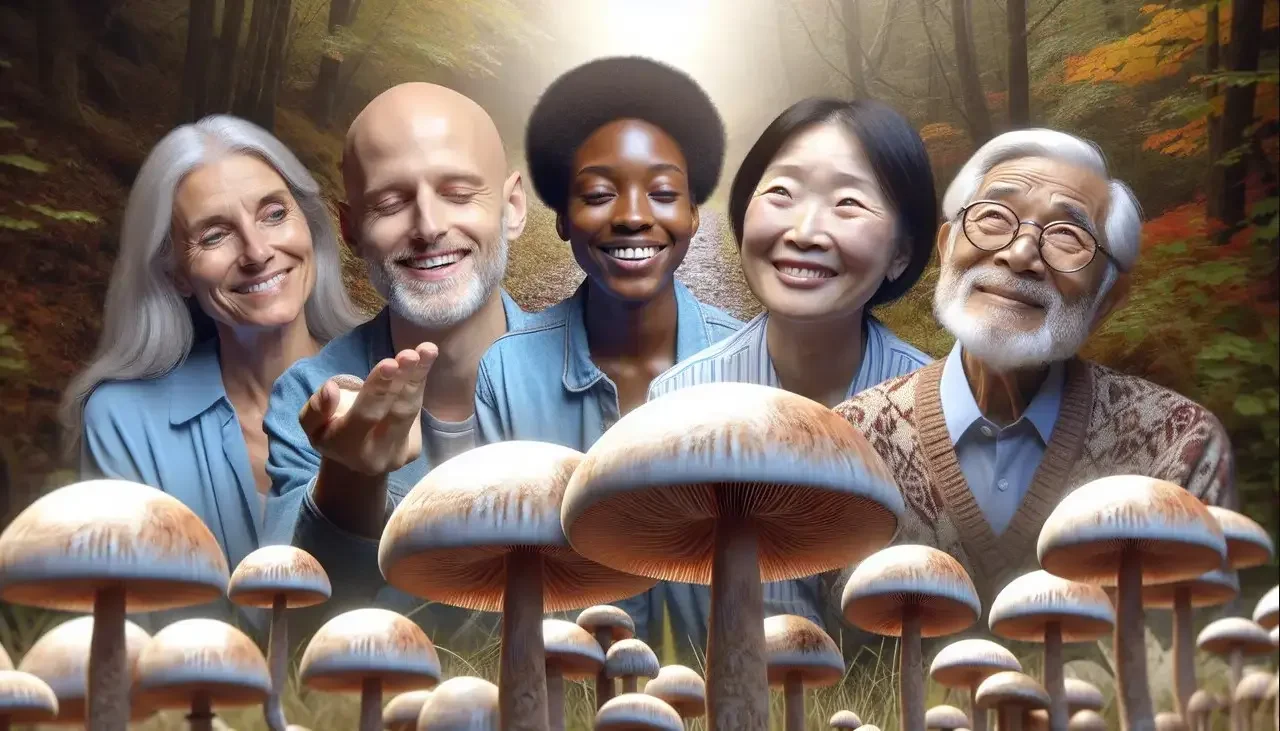Destigmatizing Magic Mushrooms
Magic mushrooms have captured imaginations and sparked debates for years. Though they’ve often been misunderstood, there is a growing interest in their potential benefits. This blog aims to explore various aspects of magic mushrooms, demystifying them and shedding light on their positive side.
The History and Cultural Significance
For centuries, magic mushrooms have been a part of cultural and spiritual rituals worldwide. From ancient shamanic practices to modern-day ceremonies, these fungi have held a place of intrigue in human history, contributing to our understanding of consciousness. Societies such as the Aztecs revered mushrooms for their ability to produce visions and believed they were a divine communication tool. In other cultures, they've been used in healing rituals and traditional medicine practices, showcasing their versatility and profound impact on spiritual welfare over time.
In more recent years, magic mushrooms have started to regain acceptance in mainstream culture through events like the Psychedelic Science Conference, where researchers and enthusiasts gather to discuss their findings and experiences. Such events highlight the growing interest in re-exploring these substances within a modern context, promoting a better understanding of their potential roles in medicine and culture.
Separating Myth from Fact
Many myths surround magic mushrooms, often painting them in a negative light. It's crucial to distinguish these myths from the factual evidence that highlights their potential benefits, ensuring informed and balanced perspectives. Common misconceptions, such as their supposed ability to cause permanent brain damage, have been debunked by scientific studies, revealing that they are in fact non-addictive and have a relatively low toxicity level compared to other substances.
Additionally, magic mushrooms are sometimes incorrectly associated with dangerous psychedelic experiences. However, controlled studies have shown that when used responsibly, they can induce profound emotional and psychological insights with minimal adverse effects. Educating people on separating these misconceptions from proven facts is a vital step in destigmatizing their use.
The Science Behind the Magic
Recent scientific research has begun to unravel the mysteries of magic mushrooms. Studies have shown promising results in areas like mental health treatment, potentially offering new avenues for therapy and well-being. The active compound, psilocybin, has been at the forefront of this research, displaying significant therapeutic potential for conditions such as depression, anxiety, and PTSD. Researchers are finding that psilocybin can help reset certain neural patterns, allowing individuals to break free from harmful thought cycles and gain new perspectives on personal challenges.
Moreover, a study from the John Hopkins highlights how a single dose of psilocybin, alongside supportive therapy, can induce long-term changes in personality traits, like openness, which is often linked to creativity and imagination. This aspect is particularly intriguing as it points to potential applications beyond therapeutic frameworks, further intertwining the significance of magic mushrooms within the broader scope of human experience.
Personal Stories of Transformation
Individuals around the globe have shared remarkable stories of personal transformation thanks to magic mushrooms. From overcoming anxiety to enhancing creativity, these narratives challenge the negative stereotypes. People have reported experiencing a heightened sense of connectedness to themselves and the world, allowing them to embrace personal growth and emotional healing.
One particular anecdote involves individuals who credit their breakthrough in overcoming writer’s block to the insights gained while under the influence of mushroom-induced states. Such stories emphasize the potential creative benefits of magic mushrooms, offering compelling living testament to their positive impacts. These accounts provide a human element to the scientific exploration of psychedelics, humanizing the abstract data and making the potential benefits more relatable and tangible.
Legal and Ethical Considerations
The legal landscape surrounding magic mushrooms is evolving. As discussions about legalization and decriminalization continue, it’s important to consider both the ethical and societal implications of their use. Some regions have already made strides in legal reforms, such as Oregon decriminalizing the possession of small amounts for personal use, marking significant progress in societal attitudes.
However, the push for legalization is not without its controversies. Ethical considerations come into play when navigating the commercialization of these naturally occurring substances, reflecting a broader debate on whether psilocybin should be accessible freely or strictly regulated. Balancing the freedom of personal exploration with public safety remains at the heart of this ongoing debate, with advocates arguing for educated access over prohibition.
A Guide to Safe and Responsible Use
For those interested in exploring magic mushrooms safely, understanding responsible use is essential. This guide covers key aspects like dosage, environment, and mindset, ensuring a positive and enriching experience. Ensuring a controlled environment and having a trusted sitter present can significantly impact the quality of the experience, minimizing potential risks.
Dosage is another critical factor; starting with low doses can help new users acclimatize and explore the effects gradually before deciding to progress. Furthermore, integrating the experience by reflecting on the insights gained can solidify the potential benefits, turning abstract realizations into concrete actions. Aspiring explorers are also encouraged to visit Happie Mushrooms' website for further resources and suggestions on responsibly integrating mushrooms into their lifestyle.
